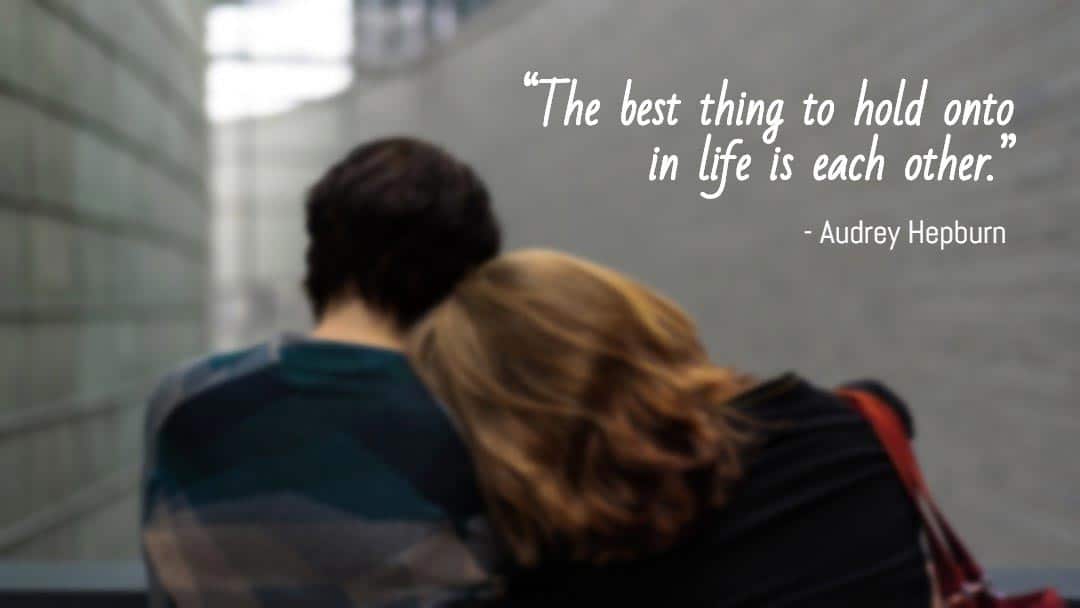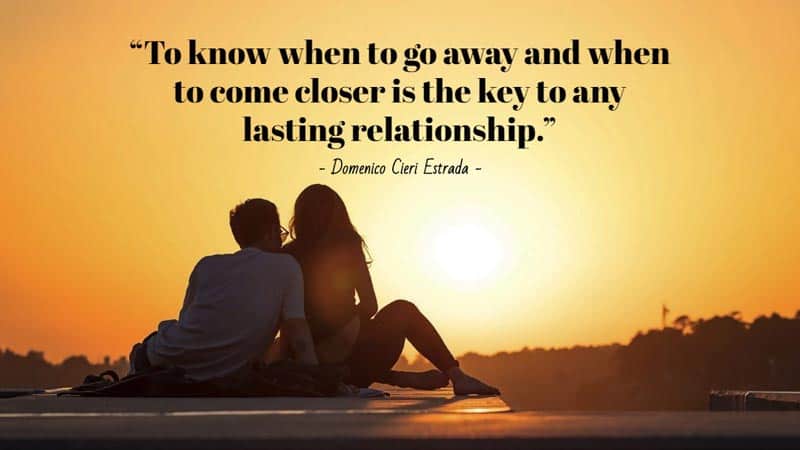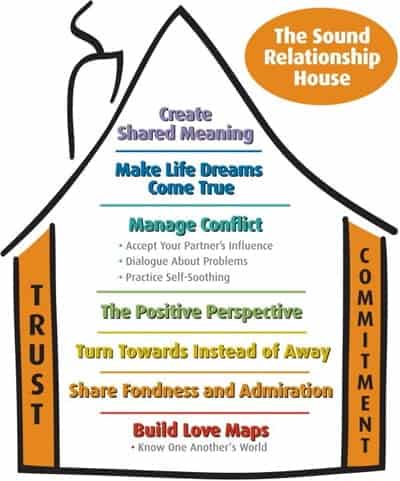Source: unsplash.com
For many of us, relationships are a source of comfort, happiness, and well-being. And that’s precisely how healthy relationships should feel.
However, that doesn’t mean it’s smooth sailing all the way. In fact, each and every couple will encounter their fair share of difficulties and obstacles. It takes effort on both sides to face life’s ups and downs together.
Unfortunately, small disputes can turn into heated arguments; routine can become boredom, and the love that brought two people together can ‘run dry’ quickly if there’s no one to nurture it.
And this is where relationship counselling comes into play. With the help of a licensed counsellor or psychologist, distressed couples can find their way to a lasting relationship or a mutually beneficial separation.
What is Relationship Counselling?
While some call it ‘relationship counselling,’ or ‘marriage counselling‘ others refer to it as ‘couples therapy.’ But the official name of this therapeutic process is Marriage and Family Therapy (MFT).
This form of psychotherapy addresses the behaviours of all family members and the way these behaviours affect not only individual family members but also relationships between family members and the family unit as a whole. As such, treatment is usually divided between time spent on individual therapy and time spent on couple therapy, family therapy, or both, if necessary.
Over the years, we’ve grown accustomed to believing that doing couples counselling means going to a professional who will solve our relationships issues. In reality, couples counselling involves more than just ‘taking’ your problems to a professional, hoping that he or she will somehow make everything ok.
Relationship counselling is a complex self-exploration process that helps partners discover the links that bring (and keep) them together. The purpose of therapy is to guide the couple towards a more profound understanding of themselves as a team.
With the aid of a licensed professional, partners gain the courage to be honest and vulnerable with each other, and the curiosity to understand each other’s needs and desires.
But what if we’re not dealing with anything serious?
Even if it might sound unnecessary, doing couples counselling before problems occur is something that many experts recommend. Even if everything seems to go well between you and your partner, it never hurts to consult a professional occasionally – that’s how you keep small problems from becoming big enough to interfere with your relationship.
Plus, relationship counselling is a great way to boost communication between partners, get to know your significant other better, and maybe turn your relationship from ‘good’ to ‘great.’
In essence, relationship counselling is about two people learning to speak and listen to each other.
When to Seek Relationship Counselling
Making relationships work isn’t easy. Let’s not forget that we’re talking about two different people, with different life stories, coming together to build one future.
In the beginning, each partner strives to bring out the best version of himself/herself, in an attempt to create a good impression – this creates mutual attraction.
Over time, the context in which the two began their relationship can change. Maybe one of them loses his/her job or perhaps a baby is on the way. In other words, every couple goes through challenges and new experiences that can reshape their future.
And, as we all know, change can unveil both the best and worst aspects of our inner self. I’m talking about the unseen dangers that can turn the person we love into a person we no longer recognise.
As with individual counselling, couples and relationship counselling should be taken into consideration from the moment the first signs of trouble appear. Because however small some problems might seem in the beginning, the heated arguments, and occasional misunderstandings can ‘tear down’ your relationship piece by piece.

One of the reasons why couples don’t consult a counsellor as often as they should is that they don’t see relationship problems as ‘real’ problems. Consequently, they fail to see the point of relationship counselling.
Even though experts in relationship problems are making an effort to move towards a more clinical model – as a result of the increasing number of distressed couples – many of us continue to view relationship issues as something that should only concern the partners.
But since a dysfunctional relationship can have profoundly adverse effects on both partner’s personal and professional life, it’s obvious that we should put aside all the misconceptions that we hold about couples and relationship counselling and ask for help whenever our relationship is going through a rough patch.
All and all, the sooner you (and your partner) seek professional help, the better the chances of keeping your relationship alive and healthy.
Signs You Need to Consult a Relationship Counsellor:
span style=”font-size: 16px;”>1. You’re having trouble communicating with each other
‘Bad’ communication is one of the most common obstacles that distressed couples face. Sometimes, it almost feels the two of you are speaking different languages. And once communication ‘breaks down’ other problems will follow.
2. Arguments are a constant part of your routine as a couple
While occasional arguments can ‘recalibrate’ the relationship, constant arguing inflicts continuous damage to the relationship, often leading to contempt and stonewalling. When heated disputes become part of your routine, perhaps it’s time to consult a relationship counsellor.
3. One of you no longer trusts the other
We all know that trust is difficult to gain and easy to lose. And once you betray your partner’s trust – or he/she betrays yours – winning it back can be extremely challenging. If you want to give each other a second chance, couples counselling is the best place to start.
4. The same problems tend to surface whenever one of you complains
Sometimes, putting your relationship back on track means going against the dysfunctional patterns that have kept you going in circles for years. In such cases, a relationship counsellor can help you two explore these ‘toxic’ behavioural patterns and replace them with healthier ones.
5. You no longer feel connected to each other
Some couples find it difficult to put their finger on the exact problem that is causing them distress. In other words, they feel lost and disconnected without knowing why. Luckily, the input of a relationship counsellor can help them gain insights into why their relationship doesn’t work like it used to.
Why Should I Consult a Relationship Counsellor?
For struggling couples, relationship counselling can be the ticket to lasting happiness or a way to end their relationship in a decent manner. Either way, couples counselling focuses primarily on facilitating communication and helping partners find their own solutions, instead of suggesting a specific course of action.
However, not all couples are willing to try therapy. While some think their problems are unsolvable, others don’t know how a ‘third party’ could guide them towards a solution.
Over the years, researchers have conducted numerous studies to determine the effectiveness of different therapeutic approaches for couples. For example, one recent scientific review revealed that emotionally focused couples therapy is an ‘effective treatment both in facilitating change during treatment, and in maintaining those improvements following treatment.’
Other studies suggest that counselling can increase relationship satisfaction by cultivating forgiveness and also serve as a viable approach to partner violence.
Long story short, there’s enough scientific evidence to confirm that relationship counselling works.
But to fully understand why you (and your partner) should consult a couples counsellor when your relationship isn’t working, let’s take a look at the telltale signs of a potential breakup or separation.
And the man who researched this subject for about forty years is John Gottman, psychological researcher and one of the world’s leading experts in divorce prediction and marital stability.
After four decades of research, Gottman identified four factors that can predict the end of a relationship. He called it The Four Horsemen, a model that is currently used by relationship counsellors from all over the world.
So, what should partners be on the lookout for and why is relationship counselling vital if you wish to avoid breakup or divorce?
Gottman’s Four Horsemen:
1. Criticism
The first predictor of separation or divorce is criticism. The negative remarks that we ‘throw’ directly at our partner – instead of his/her attitude – can cause serious damage over time. In other words, there’s a massive difference between “There’s no food in the fridge, and I’m hungry” and “Why didn’t you shop for groceries!? You’re useless!”
2. Contempt
Contempt is another strong predictor of separation or divorce. This attitude poses a serious problem that should partners should address urgently. It usually occurs in abusive relationships when one partner makes humiliating remarks or ridicules the other in public contexts.
3. Defensiveness
When you tend to become defensive every time your partner has a complaint, you rule out any chance of finding constructive solutions to coexist in harmony. Defensiveness will only show your partner that you’re not interested in how he-she feels.
4. Stonewalling
Lastly, there’s stonewalling, an attitude of complete surrender and disengagement. In other words, you turn yourself into a ‘stone wall,’ impervious to any complaints that your partner might have. That way, you can protect yourself from ‘uncomfortable’ conversations.
Whenever one or more of these factors begin to occur frequently, the result will most likely be separation or divorce. But it doesn’t have to end that way. With the help of a professional, you and your partner can find healthier ways to communicate and interact with each other.
How Can Relationship Counselling Help?
In essence, there are two ways in which relationship counselling can assist couples in fixing and strengthening their relationship.
On the one hand, this approach can assist distressed couples in finding solutions to the problems that can jeopardise their relationship. In a way, we could argue that this represents the ‘clinical’ aspect of relationship counselling.
On the other hand, couples counselling can serve as a self-development process in which partners explore different ways to improve their relationship and reap the benefits of a healthy union. In other words, a couples therapist can help two partners turn a good relationship into a great one.
In fact, relationship counselling has gained so much popularity that some experts have even begun organising groups and workshops dedicated to couples who wish to invest in their wellbeing. On top of that, there are tons of resources (books, blogs, online courses) dedicated to couples who are interested in building a healthy and happy relationship.
This goes to show that relationship counselling is a viable approach for distressed couples who no longer feel like they’re ‘clicking.’. Furthermore, judging by the increasing number of couples who go to therapy, it seems people are beginning to realise how helpful relationship counselling can be, not just for distressed couples but also partners who feel like there’s plenty of room for improvement.

What Happens During a Session?
The methods and strategies used in relationship counselling can vary from one therapist to another. Some counsellors prefer to see both partners during the session, while others prefer occasional individual sessions.
Some therapists have a more educational approach, focusing on providing valuable insights to their clients while others put more emphasis on listening and understanding the struggles that clients go through.
Some therapeutic approaches take months while others take years. Sometimes, it only takes two or three sessions to overcome communication barriers, at which point partners can fix their relationships by themselves. But there are also cases when couples are encouraged to join both individual and group sessions.
The point is, there are no set-in-stone rules, at least not when it comes to factors such as duration, frequency, or type of therapy. However, all licensed mental health professionals – and that includes couples counsellors as well – are required to follow a strict code of ethics that governs this profession.
In essence, the role of the counsellor is to re-establish balance in your relationship, a balance based on a new set of rules and habits. His/her position is that of an observer and moderator of the interaction between partners. And the fact that the dialogue takes place in a secure and confidential place – under the guidance of a professional – allows partners to discuss problems they wouldn’t discuss in the matrimonial space.
But if there’s one thing that we need to remember, is that the purpose of relationship counselling isn’t necessarily to save the couple at all costs. Paradoxically, in couples counselling, success can mean either the restoration of balance in the relationship or separation as a solution that both partners acknowledge and accept.
Types of Relationship Counselling:
1. Cognitive-Behavioural Couples Counselling
Cognitive-behavioural therapy is an evidence-based approach that aims to help people overcome emotional and behavioural problems by explaining how dysfunctional thinking patterns lead to negative emotions and problematic behaviours.
With the help of this method, couples can learn how to combat the negative attitudes and behaviours that impact their relationship. That way, they can find solutions to their problems and communicate more effectively.
2. Emotionally Focused Couples Counselling
Emotionally focused couples therapy is a short-term structured approach developed in the ’80s. Even today, this therapeutic approach is popular among relationship counsellor from all over the world.
Its primary purpose is to extend the understanding of what’s happening between partners, which will guide the therapist in the process of recreating a safe and healthy couple interaction. With a strong emphasis on emotions and a solid foundation in attachment theory, this approach can help distressed couples regain stability.
3. The Gottman Method
Based on the works of John Gottman, The Gottman Method is a relatively new approach to couples counselling. The three critical aspects of this method are assessment, therapeutic framework, and therapeutic interventions.
But at the core of Gottman’s method is a set of goals and principles that therapists refer to as The Sound Relationship House.

Source: gottman.com
With the help of this simple model, counsellors and therapists can assist couples in building a happy and lasting relationship.
4. Solution-Focused Couples Counselling
As a name suggests, solution-focused couples therapy relies on helping distressed couples find ways to fix specific problems that threaten the integrity of their relationship. This method involves short-term therapy with relatively quick results.
For distressed couples, this therapeutic approach cultivates awareness, leads to a better understanding of how problems occur, and helps partners set common goals.
Where Can I find a Relationship Counsellor?
Finding the right relationship counsellor isn’t easy. Since the Internet is full of self-proclaimed relationship ‘experts,’ it’s essential to find a licensed counsellor or psychologist with the relevant background, qualifications and experience. And that means doing a bit of research before choosing the counsellor whom you wish to consult.
First, begin by learning about the various types of couples and relationship counselling: systemic, solution-focused, cognitive-behavioural, etc. Talk to friends, relatives, neighbours, or colleagues who’ve already been in therapy. Ask them to share their experience so that you can get a better sense of how this process works.
But like any process that involves ‘adjusting’ emotions and behaviours, couples counselling varies from one case to another, and so do its effects. However, what we know for sure is that relationship counselling – regardless of the approach – is the appropriate way to adjust the balance of a relationship.
For those of you who’ve seen a psychologist individually but want to consult a relationship counsellor as well, make sure you find another counsellor. Although it’s not a fixed rule, most experts recommend doing couples counselling with someone neither you nor your partner knows from previous encounters.
The easiest and most reliable one is word-of-mouth recommendations. In other words, ask someone who’s been in therapy to refer you to the person with whom he/she has worked.
Before you book an appointment, make sure you prepare some questions to things you’d like answered. For example, questions like:
- Are you a licensed professional?
- What’s your approach to couples counselling?
- How much experience do you have with couples and relationship counselling?
Can help you figure out if the person you wish to collaborate with is, in fact, a qualified professional.
Final Thoughts on Relationship Counselling
If your relationship is going through a rough patch, couples counselling can assist you in avoiding a potential breakup.
As soon as both partners decide to seek help, a counsellor or psychologist can help them understand the source of the problem, improve their communication, strengthen their cooperation strategies, and slowly move towards healthier couple interactions.
Since many relationship issues are caused or aggravated by poor communication, counsellors often begin the process by focusing on this aspect. That’s because once partners learn to communicate better, it’s easier to solve other problems that may cause tensions between them.
But aside from addressing relationship issues, counsellors will also pay attention to individual problems that each partner might be struggling with. Sometimes, relationships fall apart because partners fail to discuss their personal issues.
Most of the therapeutic approaches that couples counsellors use rely on a relatively structured process. In other words, partners define common goals, test solutions, and learn to become mindful of each other’s emotional needs.
And since getting rid of old habits and replacing them with healthier attitudes is a matter of exercise, partners need to have an active involvement in the process. In fact, much of the intervention doesn’t even take place in the counsellor’s office, but in the couples’ everyday life.
In the end, relationship counselling is about guiding two people towards a happier life; even if that means acknowledging and accepting the end of the relationship.
Please note that the information provided in this article is for educational purposes only and should not substitute professional medical or mental health advice. If you or someone you know is in immediate distress or needs assistance, please reach out to a mental health professional or helpline in your country or state.





